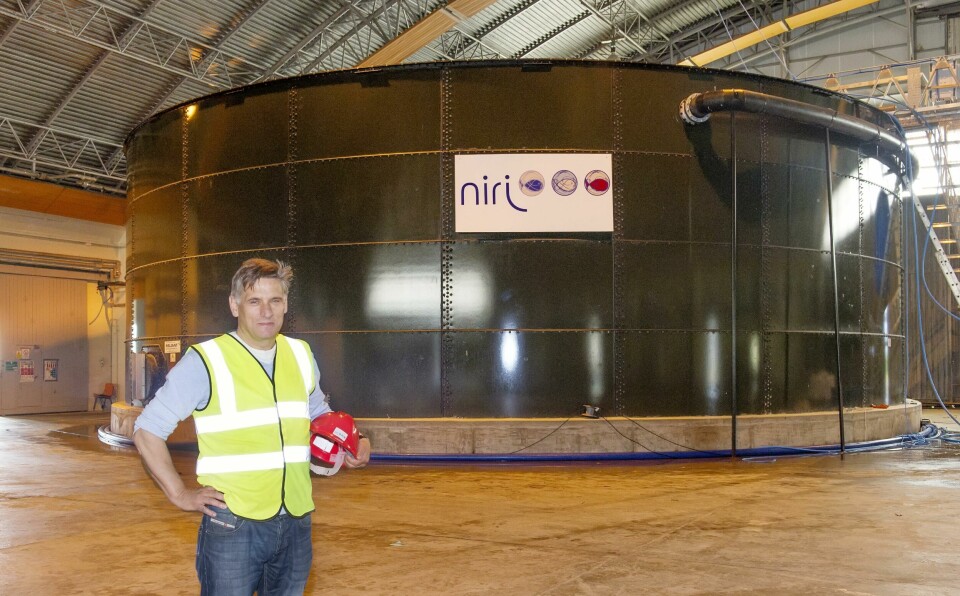
Grounded hangar RAS project 'will start again'
The man behind an on-land salmon farm based at a former airforce base in the west of Scotland has pledged to renew the project after a water supply issue wrecked plans to harvest the fish.
Norwegian Arve Gravdal, founder and chief operating officer of RAS company Niri, was growing 26,000 salmon in a large tank in a hangar at Machrihanish, Campbeltown, but decided to take the fish out about two months ago after the water became contaminated with detergent.
Because of the contamination, most of the salmon – which Gravdal said were market-size – were recycled, with the rest frozen as specimens to demonstrate the high-quality fish the RAS produced.
'Lost the water'
Speaking from Norway, where Niri has its base at Måløy, north of Bergen, Gravdal stressed that the fish didn’t die as a result of equipment failure, as has sometimes been the case with RAS.
“The problem was we lost the water, the warm water. When you are recirculating you are also changing a little bit of the water, we lost that for 10 days. We had a little for two days but that had soap in it. That was horrible, we couldn’t stress the fish more. [But] the technology worked flawlessly.”
“We decided just to stop it,” added Gravdal. “The fish hadn’t died. We saw increased mortality, we saw the fish had problems because of the soap and the chemicals [in the water supply] and we stopped it.
'Super quality'
“The fish were actually market-sized. We froze some and we made silage of the rest. We froze just a few for specimens, because there was soap in it, but we took them [to show] the quality, it was super quality.
“The project was two-fold: to prove the technology and to take out the fish. We lost the last weeks, that was the problem, otherwise it was 100 per cent success. And we are continuing, 100 per cent, the same people who were over there [in Scotland] and looked at it and know everything that happened with the fish, and they are investing in Norway.”
Gravdal said he was certain Niri would re-start land-based farming in Scotland, but the details hadn’t yet been worked out.
'Continuance in Scotland'
“I don’t know what’s going on in Scotland because there are three owners there, and we are kind of talking in the hallway now to discuss the further funding of it,” said the RAS expert. “I am 100 per cent sure there will be continuance in Scotland. We are now discussing how we are doing it.
“They are confident, and if the money people are confident, so should we be.”
He said the next tanks to be built in Norway and Scotland would be based on the existing model, with just a few adjustments to the hydraulics inside the tanks.
“We are working with a Danish engineering company. We have funded a project in Norway, and that is the blueprint of the project we are doing in Scotland, so it’s a matter of how we fund up the project in Scotland and under what name. That’s what it is about. We are discussing it with the owners there now.
“We are continuing now, engineering for the next phase. The engineering side is the same in Scotland, so it [the modified system] may come first in Scotland, depending on the situation over here. That’s the same blueprint [for Scotland and Norway]. We have 10 people working full-time on the project now.”






















































